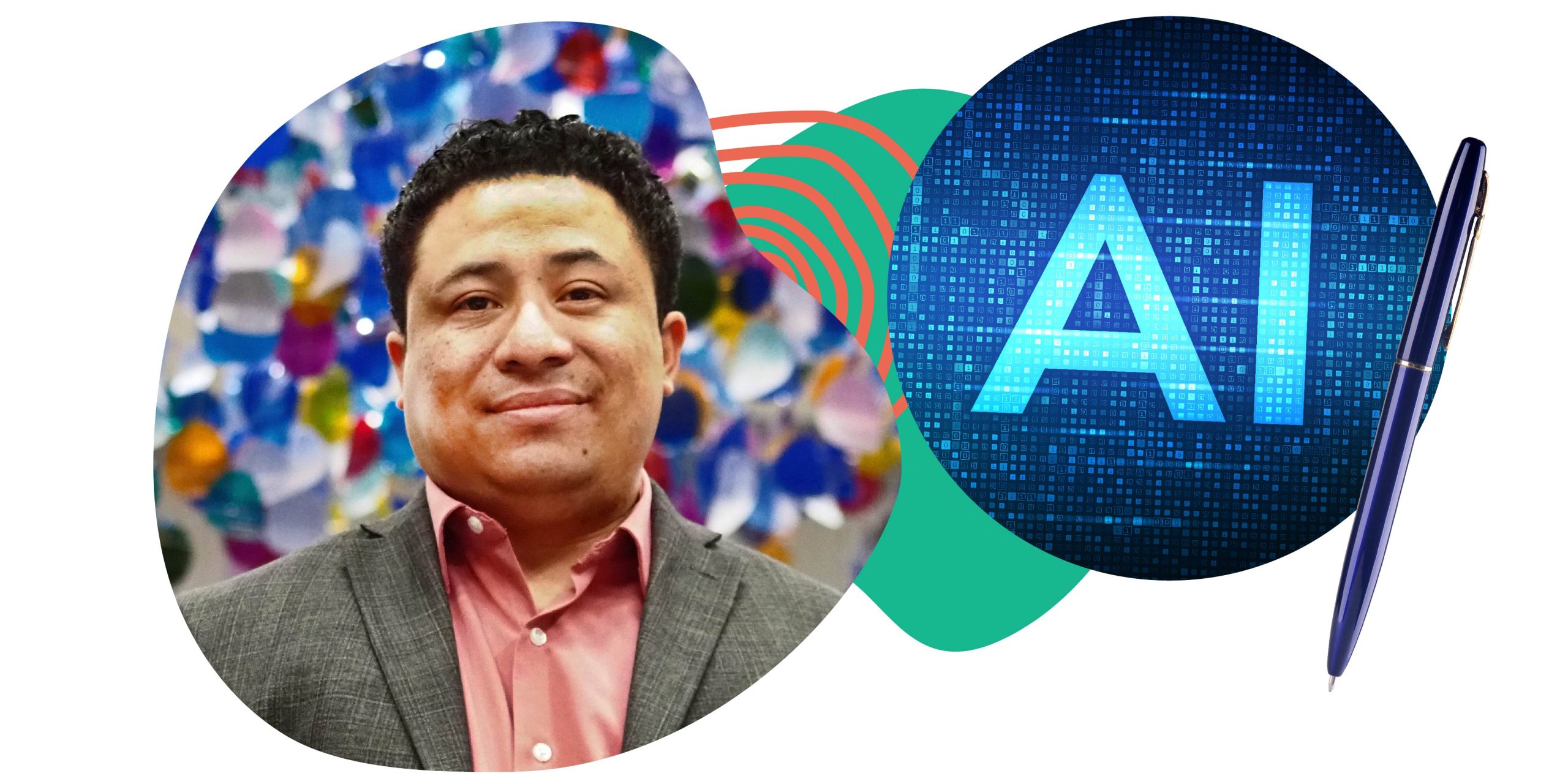
Written by Manuel Iris, Writer-in-Residence, Cincinnati & Hamilton County Public Library
Our 2023 Writer-in-Residence, Manuel Iris, is a poet, essayist, and teacher. Attend his upcoming workshops and writers' office hours. And, listen to him as host of CHPL's "Inside the Writer's Head" podcast.
I look at my desk. I still have a pencil and paper. Archaeological objects from a time that—for those with the privilege of having electricity, a computer, and Internet at all hours—seem obsolete. Today, writing is done directly on the keyboard and is always or almost always read on a screen. The mechanics of writing have become more efficient.
The current technological novelty, however, no longer has to do with the mechanics or writing but with its very conception: thought. It is possible to ask (order) an artificial intelligence to write or develop ideas (can we call those results ideas?) based on questions or data that someone provides. The result is an immediate and correct text. Of course, the possibilities of this technology are not limited to writing, but extend to all fields of human thought and creativity. Artificial intelligences can create responses of all kinds in a very short time, with frankly impressive results. They are efficiency itself, and that is why they will become (we will make them) essential.
We once imagined a world in which robots would do the physical and manual labor, while we humans, with all our problems solved, could dedicate ourselves to art and recreation: the pursuit of our humanity without the shackles of work. However, we have wanted to hand over art to artificial intelligences, while armies of humans who live in misery continue to carry out dangerous, subhuman tasks, without anyone protecting them or replacing them. It is not our intelligence (natural and artificial) that has failed, but rather our priorities.
Artificial intelligence will be as dangerous as our real stupidity if humanity does not learn to ask it the right questions. Carefully observed, this invention solves a gap that never existed, a fictitious problem: humanity has never lacked intelligence. Perhaps we need, because we have lacked this throughout our history, the development of artificial compassion, artificial empathy, artificial wisdom, or even artificial love, to be able to guide that intelligence along paths other than efficiency, and above all, economic efficiency, which can be (as has been) the cause of human misery as profound as the greed that makes use of it.
Confusing Pyrotechnics with Light
Of course, I don't believe that artificial intelligences can create poetry. They can, I have verified, write texts that simulate (and very well) certain modes of writing normally associated with the poem: rhyme, common themes, language games. But to confuse this textual capacity with poetic creation is to confuse pyrotechnics with light. Poetry uses intelligence, yes, but it comes from intuition. The poetic process is nourished by not-knowing. Poetry is not an answer, but the silence between a question and a possibility. It is an exploration, not of what we know, but of what we are. Being, the conflict of existing, being aware of oneself, and questioning one's role in the face of the cosmos and transcendence, is the poem's center. And no intelligence, artificial or not, comes close to that music that seeks to reach a possible articulation of the void. Intelligence is not enough.
AI will probably be part of the technical repertoire of future artists: a tool. But they (AIs) will not write poems because they will not need, like us, to articulate their doubts and their silences. One needs to be able to die to need to write a poem. One must be able to dream, miss something, to pursue the rhythm at which an image can perpetuate itself. Poetry will continue to be there for those who need it and can recognize it. Forever.
Attend Manuel's upcoming workshops and writers' office hours, opens a new window. And, listen to him as host of CHPL's "Inside the Writer's Head" podcast.


Add a comment to: Artificial Intelligence, Humanity, and Poetry